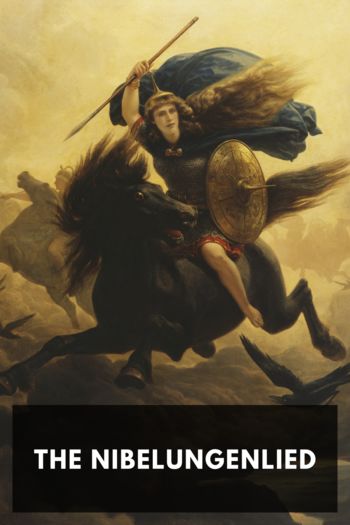The Trials of Radclyffe Hall, Diana Souhami [best sales books of all time .TXT] 📗

- Author: Diana Souhami
Book online «The Trials of Radclyffe Hall, Diana Souhami [best sales books of all time .TXT] 📗». Author Diana Souhami
Lord give me patience in tribulation and Thy grace truly to say Thy will be done on earth as it is in heaven. The things that I pray for good Lord give me the grace to labour for. Amen.
And labour she did, though resolutions of kindness disappeared into the ether. Una was a formidable foe. Her determination was absolute. She had clung too long to the host for her tendrils to be prised free.
John took Evguenia to Rye for a night on 15 November. They arrived early evening. Una had set the scene. ‘I made the Forecastle put on all its war paint for Souline to see.’ Log fires blazed, rooms were lit by candlelight, there were flowers in jugs and pewter vases. In the dining-room Una’s shrine to Our Lady of Pity was lit by a tall red candle ‘with red carnations in the chalice and yellow chrysanthemums before her’. None of it, Evguenia knew, was for her benefit. It was a warning to back off.
‘A trois’ became a much-used phrase, as familiar as Our Three Selves. A trois they had tea and dinner, lunch at the Mermaid and visited Smallhythe. Evguenia was their protégée, a Russian refugee in their care. In the evening John took her again to the Folkestone Hotel.
Evguenia went back to Paris on 17 November. They were to be apart six weeks. John poured out desolate letters. ‘I feel as though the whole of me was bleeding, as though something vital had been torn away – and this wound will go on bleeding & bleeding until our next meeting, Soulina. Dearest –’
She kissed the bed Evguenia had slept in, gazed at her photograph and longed for letters. ‘You have made me a stranger to what was once my life, for now I have no life apart from you who have become my life – you greatly adored little Chink-faced Russian.’ At night she lay listening to the doleful sound of fog horns on the sea that separated them. She worried that Evguenia would drink spirits, or go out without galoshes. On a day when no letter came, she worried so much that Una phoned the American Hospital in Paris to check Evguenia was there.
This life that was now no life – life with Una – needed sorting out. Its determining rules had been violated. There were scenes which left them both shattered. There was a storm and Una felt as troubled as it. ‘Very sad and unhopeful. Fruitlessly thinking of happier days.’
Evguenia was John’s consolation for the trial of The Well of Loneliness, the failure of The Master of the House, the dead end of her feelings for Una. She said Evguenia had brought her back to life and because of her she could again work. But she needed Una to affirm this work. All that Una now did was with a view to ousting Evguenia. She used the novel John was writing, Emblem Hurlstone, as a weapon. She read it aloud and called it ‘the futile frittering of a bogus book, an excuse for writing about Evguenia’s mannerisms and characteristics, the man’s reactions to them and his passion for her’. Set in Sirmione, it was about a man liberated by the death of his mother and his love for a younger woman. Una undermined it. She told John it lacked inspiration and urged her to abandon it.
Una pretended affection for Evguenia. She sent her linen handkerchiefs. Evguenia reciprocated with preserved fruit. John told Una, ‘You are the wide river of my life. The others are tributaries.’ She believed that somehow they could be a family of three. It was the kind of family she knew: warring, manipulative and incestuous. Its bonding was to do with possession, sex, money and control. Roles were questionable. None of them was sisterly. Una was a mother from hell, Evguenia a difficult daughter, John a dubious father. If à trois was husband, wife and mistress, Una wanted preferential rights. She was resentful when the doorbell rang and John said to her, ‘Soulina there’s someone at the door.’ Evguenia complained of feeling like a stray dog, of not knowing where she belonged.
Evguenia now wore the ring John gave her. She was told to tell Mrs Baker it came from Una. John encouraged dependency and exerted control. Evguenia’s rent and the concierge’s wage were paid by banker’s order, she had an allowance of £10 a month, she was to use Petrol Hahn on her hair – ‘Honest darling, your hair is almost non-existant’ – she was not to use red lipstick, wear grey or green or stay out late.
John’s ‘heart turned over’ when Evguenia got a Christmas cheque from Mrs Baker. And she panicked that a Franco-Russian military pact might lead to her expulsion from France. She asked Rubinstein to get English naturalization for her. He said she would need five years’ residence before it would be considered. He thought France would grant citizenship if she kept working at the American Hospital. With it, she could visit England for months at a time.
John could not now tolerate being alone with Una. Christmas at the Forecastle was a ritualistic affair: candles and plum pudding, a crib and angels on the tree. Una at her twentieth midnight mass with John prayed for a resolution of her difficulties. ‘The way out is quite beyond my unaided guidance.’ John prayed for citizenship for Chinkie Pig.
They both went to Paris in January 1935. John wanted to





Comments (0)